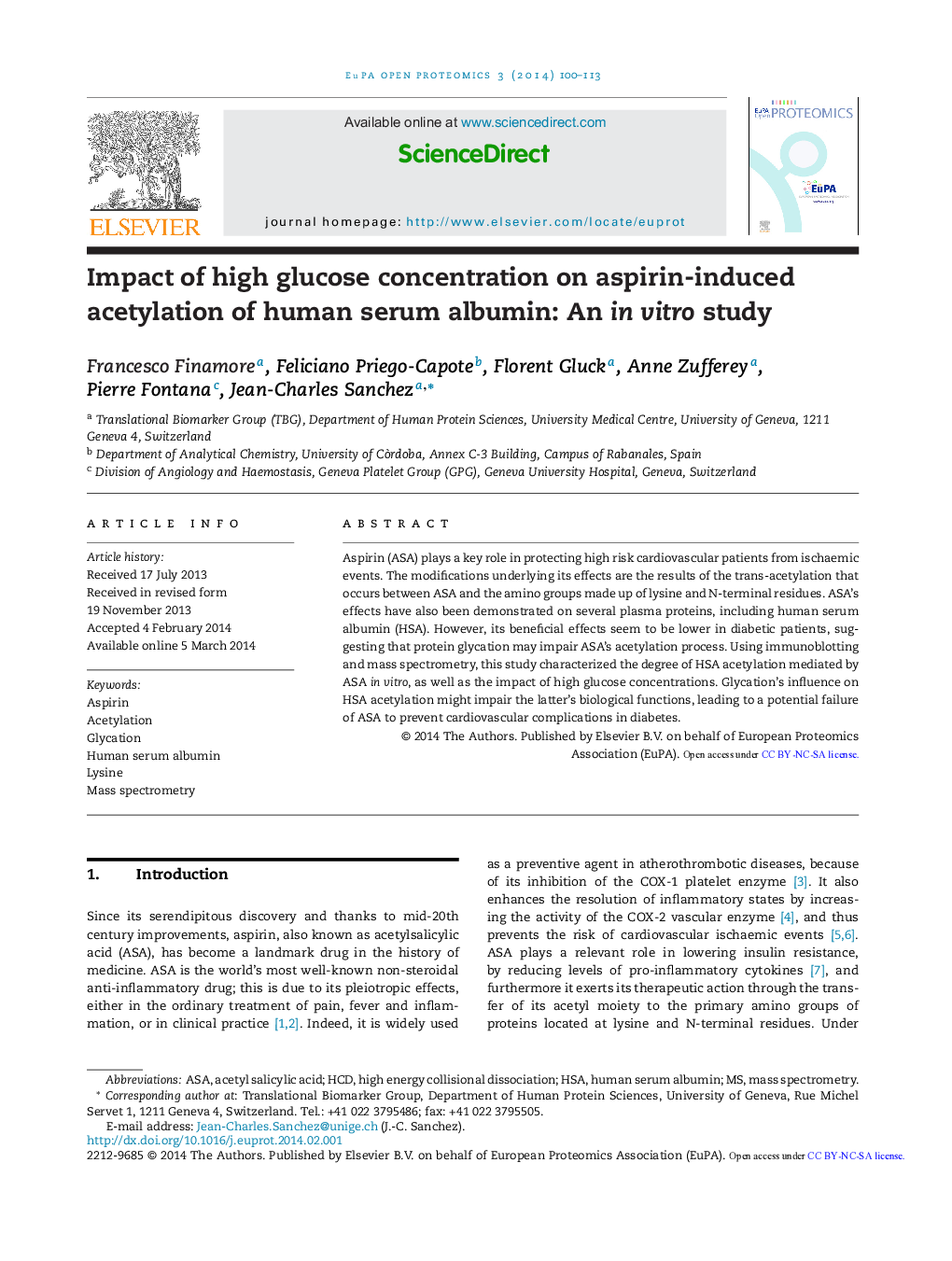| Article ID | Journal | Published Year | Pages | File Type |
|---|---|---|---|---|
| 1182998 | EuPA Open Proteomics | 2014 | 14 Pages |
Aspirin (ASA) plays a key role in protecting high risk cardiovascular patients from ischaemic events. The modifications underlying its effects are the results of the trans-acetylation that occurs between ASA and the amino groups made up of lysine and N-terminal residues. ASA's effects have also been demonstrated on several plasma proteins, including human serum albumin (HSA). However, its beneficial effects seem to be lower in diabetic patients, suggesting that protein glycation may impair ASA's acetylation process. Using immunoblotting and mass spectrometry, this study characterized the degree of HSA acetylation mediated by ASA in vitro, as well as the impact of high glucose concentrations. Glycation's influence on HSA acetylation might impair the latter's biological functions, leading to a potential failure of ASA to prevent cardiovascular complications in diabetes.
